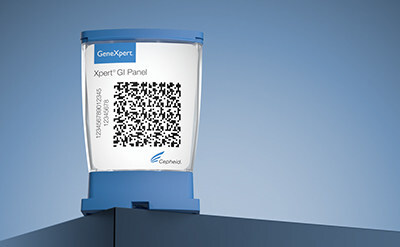The FDA has granted accelerated approval to Forzinity (elamipretide) injection, making it the first approved treatment for Barth syndrome, a rare, life-limiting mitochondrial disorder.
Developed by Stealth BioTherapeutics, a biotechnology company based in Massachusetts, the therapy is approved to improve muscle strength in adult and pediatric patients weighing at least 30 kg. This decision makes Forzinity the first mitochondria-targeted therapy to receive FDA approval.
The approval follows more than ten years of research and patient advocacy.
What Is Barth Syndrome?
Barth syndrome is an ultra-rare mitochondrial disorder that primarily affects males. It stems from mutations in the TAZ gene, which impair production of tafazzin, a protein that remodels cardiolipin. Cardiolipin is a lipid essential for mitochondrial energy generation. This disruption weakens the heart and skeletal muscles, leading to cardiomyopathy, fatigue, growth delays and neutropenia.
The condition, diagnosed mainly in infancy, has been found to link defective mitochondrial metabolism to early cardiac disease.
Until now, treatment has only focused on managing symptoms through heart medications, infection control and nutritional support.
Living with Barth syndrome also places a heavy burden on patients and their families. Studies show that individuals with this condition often experience physical limitations, chronic fatigue and emotional stress, which can affect their school, work and relationships.
Many report a lower quality of life compared to peers with other chronic diseases, and caregivers frequently feel additional strain from managing complex, lifelong symptoms.
XTALKS WEBINAR: Engineering Peptide Stability Through Azapeptide Synthesis and Applications
Live and On-Demand: Friday, November 21, 2025, at 11am EST (5pm CET/EU-Central)
Register for this free webinar to learn how azapeptide strategies can enhance peptide stability and accelerate synthesis workflows.
Elamipretide and the Expanding Field of Mitochondrial Medicine
Forzinity is a mitochondria-targeted synthetic peptide that binds to cardiolipin, a lipid critical for maintaining mitochondrial structure and energy production. By improving mitochondrial function, elamipretide may help muscles work better and increase physical strength and endurance in patients with Barth syndrome.
Mitochondria are often described as the cell’s powerhouses, but they also control metabolism, calcium levels and stress responses, influencing how cells grow, repair and survive. When their function declines, energy production drops and molecular signaling becomes disrupted, which can affect many organs at once.
Experts recognize that mitochondrial dysfunction could also underlie more common conditions such as heart disease, neurodegeneration and diabetes.
Other companies, such as the Netherlands-based Khondrion, are also progressing late-stage mitochondrial therapies, including sonlicromanol, for primary mitochondrial disease.
Another company pursuing mitochondrial-targeted drug research is UCB. Early this year, at the 2025 Muscular Dystrophy Association (MDA) Conference, the company reported that its investigational nucleoside therapy (doxecitine and doxribtimine) improved survival and motor function in people with thymidine kinase 2 deficiency (TK2d), a severe muscle disorder caused by mitochondrial DNA depletion.
A more recent study from Scenic Biotech and researchers at SickKids has identified the gene ABHD18 as a potential modifier that can restore mitochondrial and cardiac function in preclinical Barth models by regulating cardiolipin.
Clinical Data and Next Steps
The FDA’s decision is based on data from the TAZPOWER study, a clinical trial assessing the safety and effectiveness of elamipretide. During the open-label part of the study, patients receiving daily subcutaneous injections showed improvement in knee extensor muscle strength, which is a measure of how strongly a person can straighten their leg. The FDA considers this measure likely to predict real-world benefits, such as making it easier to stand or walk.
As a condition of the accelerated approval, Stealth BioTherapeutics must conduct a post-approval randomized, double-blind, placebo-controlled trial to confirm that the observed improvement in muscle strength leads to meaningful benefits for patients. Continued approval may depend on the results of this confirmatory study.
In clinical testing, the most common side effects were mild to moderate reactions at the injection site, such as redness or irritation, which were manageable with oral antihistamines or topical corticosteroids.
To support access, Stealth BioTherapeutics has teamed up with AnovoRx Specialty Pharmacy for exclusive US distribution of Forzinity, through its new Mito Assist program.
Stealth BioTherapeutics also plans to collect additional data in younger patients under 30 kg as part of its ongoing collaboration with the FDA.
If you want your company to be featured on Xtalks.com, please email [email protected].












Join or login to leave a comment
JOIN LOGIN